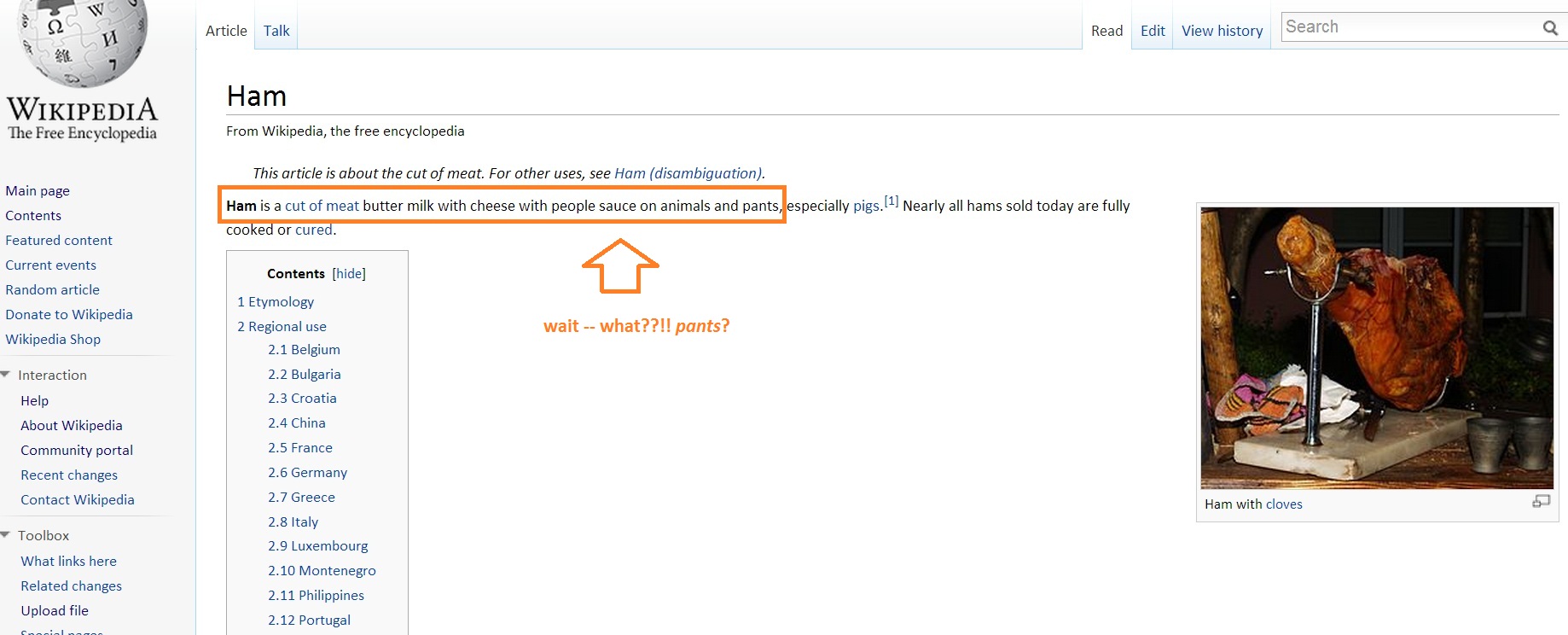Everything You Wanted To Know About Wikipedia, Part 6: FAQs
November 21, 2012
Here it is: the very last in our Wikipedia blog series. We’re wrapping things up this week with a few odds and ends, random tidbits, and FAQs that didn’t quite fit in any of our other posts in the series.
Enjoy!
Frequently Asked Questions
Q: I want to write a Wikipedia article about my company – but we were sued for discrimination last year and it was all over the papers. Do I have to include that in my article?
A: If it’s notable, you should include it. Wikipedia is supposed to be a source of neutral and unbiased information – and it’s supposed to include all relevant facts, not just the facts that make your topic look good. You can choose to omit a scandal, if you really want to. But remember that literally anyone can edit your article. Chances are good that someone will find the information and add it in – and you won’t be able to do anything about it. What’s more, an article that is too blatantly positive might get flagged for neutrality issues or a conflict of interest – and that could put your article and your entire Wiki account at risk.
Q: Can you guarantee that my Wikipedia article will stay up and/or remain intact?
A: No. We can review your sources and tell you if your topic is Wiki-eligible. We can write and/or edit your article to ensure that it “sticks.” We can make sure that your article is neutral, unbiased, and properly sourced. But because anyone can edit Wikipedia, we can’t offer any type of guarantees that your page will remain as-is.
Q: What do you mean, “Anyone can edit Wikipedia?”
A: We mean exactly that: Absolutely anyone can create or modify a Wikipedia page – as long as they follow the rules about neutrality, notability, and sources.
Q: What if someone vandalizes my page? Does that happen?
A: Vandalism can happen, but it’s rare. Fortunately, the Wikipedia community is fairly vigilant about spotting – and more importantly, correcting – cases of outright vandalism. That said, it’s unlikely that your page will be vandalized.
But when vandalism – or even bad, nonsensical editing – does happen, it doesn’t stick around long. Here’s an example of a type of almost-vandalism that Wikipedia calls “patent nonsense”:
This may or may not be straight-up vandalism. Someone could have accidentally “published” a test edit, or this could be the result of a language barrier or a (really, really) bad translation. Whatever the case, this, um, unusual lead paragraph didn’t last long at all.
The vandalism – or whatever it was – was quickly cleaned up:
Q: Why can’t this letter/diary entry work as a source for my Wiki article?
A: Wikipedia articles must be created using information from secondary sources – magazine and/or newspaper articles, books, and some websites. Letters and diaries are considered primary sources – and therefore not suitable to use as sources for your Wikipedia article. If you want your Wikipedia article to stick, you have to follow the rules.
For a more detailed discussion of sources, check out this post.
Q: Who made you the boss? Why do you get to tell me what I can and can’t put on my Wikipedia page?
A: Nobody made us the boss. We don’t have an agenda. We don’t work for Wikipedia. As Wikipedia writers/editors/consultants, our job is to know the rules and standards – and help our clients follow those rules and standards. Our only goal is to help you create a well-written, neutral, properly sourced article that doesn’t get flagged. In other words, we’re sticklers about following the rules because we want your page to stick. We’re sticklers because it’s our job.
Q: Why do I need to cite this? It’s true – I promise!
A: We believe you. But you still have to cite the information – it’s Wikipedia policy:
Q: Is my company/topic/product Wiki-eligible?
A: That depends. To be eligible for a Wikipedia page, a topic has to be notable – in other words, it has to have received some amount of media coverage. If your company/product/topic has appeared in a newspaper or magazine, you might be eligible.
You can use this handy Wikipedia checklist to see if your topic is eligible.
”
Four Ways to Flag-Proof Your Wiki Page
Want to make sure your Wikipedia page remains free of flags? Here are 4 ways to help create a page that sticks:
1. Use citations from neutral, third-party sources such as newspapers, magazines, scholarly journals, or government websites.
2. Avoid stating opinions as facts. Use neutral language to describe conflicts or differing viewpoints.
Good: “Some critics say that Company XYZ treats its employees unfairly.”
Bad: “Company XYZ treats its employees unfairly.”
Good: “According to XXX, Company XYZ makes the best widgets.”
Bad: “Company XYZ makes the best widgets.”
3. Don’t omit negative/controversial details just because you don’t like them. If the information is out there, you should include it.
4. Use neutral words and a disinterested tone. State facts and let the reader draw his or her own conclusions:
Good: “Senator Smith was elected 5 consecutive times.”
Bad: “Senator Smith was popular and well-liked by her constituents.”
Good: “Senator Smith sponsored 20 pieces of legislation related to education and children’s issues.”
Bad: “Senator Smith was a champion of education and children’s issues.”
So, that’s it for the series. Hope you’ve enjoyed it! Have any questions? Need some advice? Still not sure if your topic is Wiki-eligible? Leave us a comment or email wintress@thewritersforhire.com – we may even feature your question in a future blog post!



































Undeniably believe that which you said. Your favorite justification seemed to be on the web the simplest thing tobe aware of.